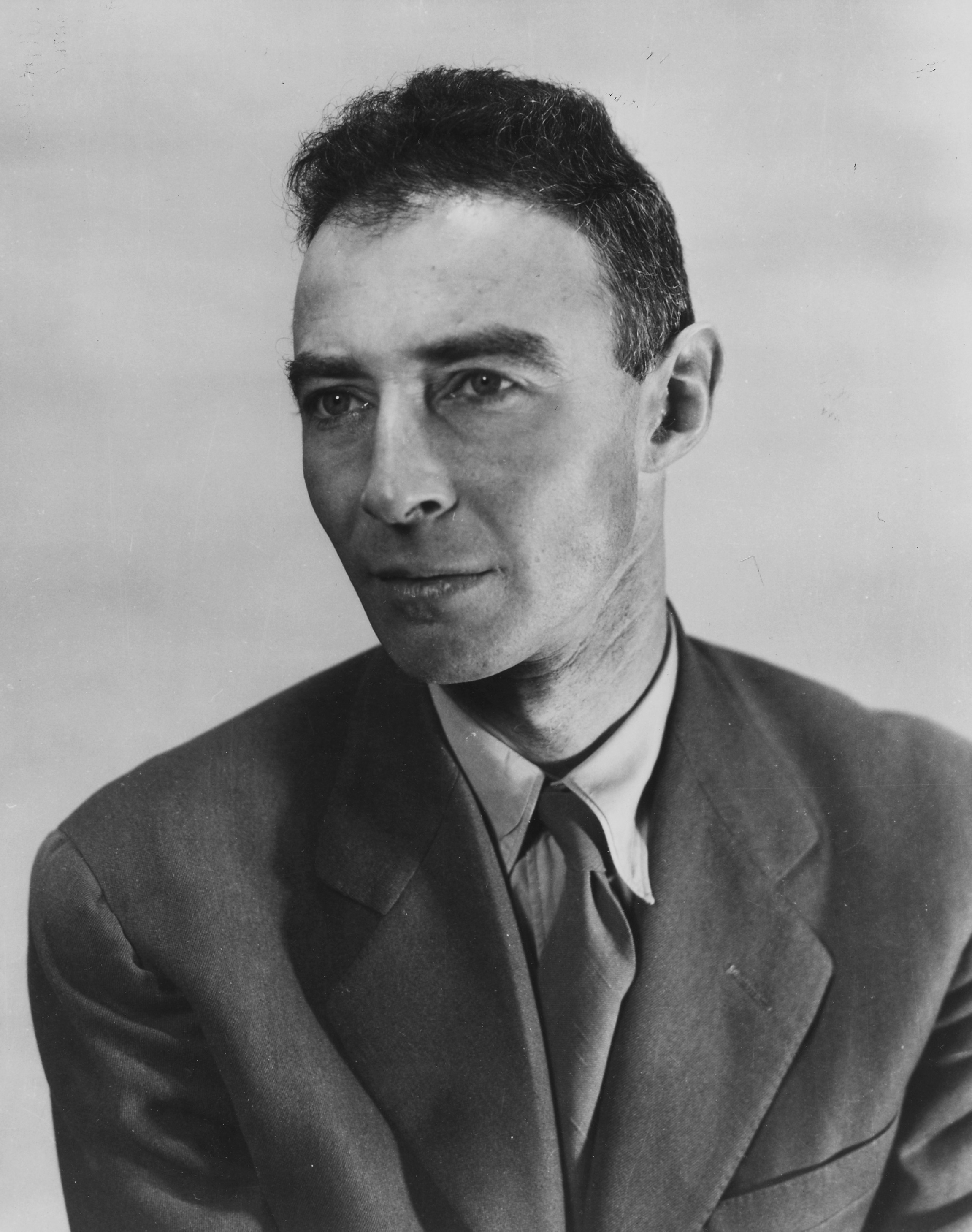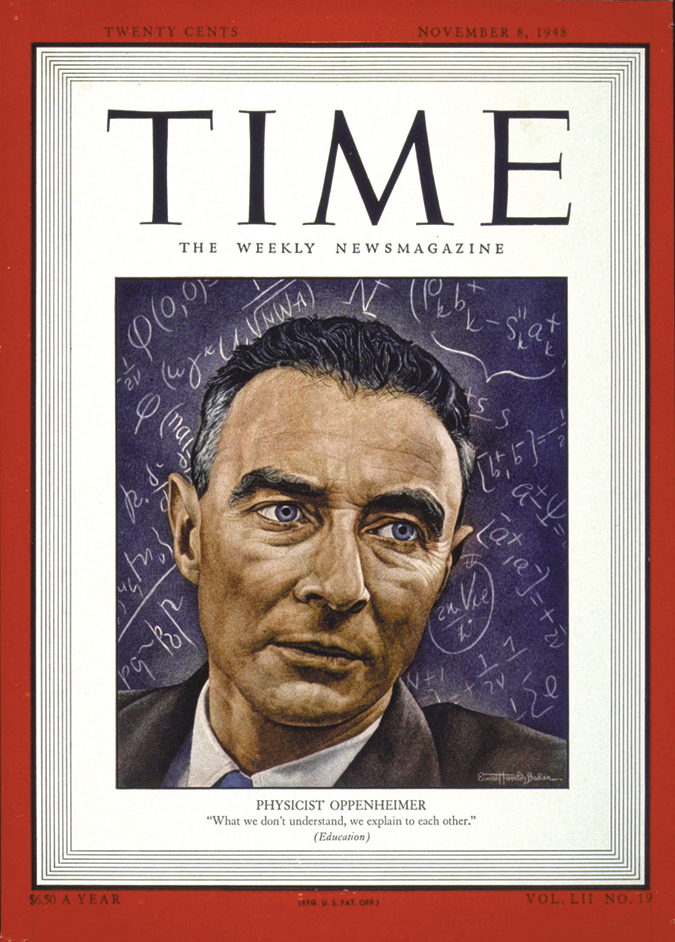Oppenheimer, << OP uhn `hy` muhr, >> J. Robert (1904-1967), an American physicist, became known as the father of the atomic bomb. From 1942 to 1945, he directed the Manhattan Project, the United States government’s program to build the first atomic bomb during World War II (1939-1945). Much of this work took place in Los Alamos, New Mexico.

From 1947 to 1952, Oppenheimer headed the advisory committee of the newly formed United States Atomic Energy Commission (AEC). He also advised the U.S. Department of Defense and helped write the first United States proposal for international control of nuclear energy.

In 1953, Oppenheimer’s loyalty to the United States was questioned. The charges of disloyalty gave rise to probably the most famous security hearing of the 1950’s. Oppenheimer’s initial opposition to the development of the hydrogen bomb, together with his past associations with Communists, led to an investigation in 1954 by an AEC security panel. The panel cleared Oppenheimer of all charges of disloyalty, but it denied him further access to secret information. In 1963, the AEC gave Oppenheimer its highest honor, the Enrico Fermi Award, for his contributions to theoretical physics. Many people viewed this as an effort by the government to correct a tragic mistake.
Oppenheimer was born on April 22, 1904, in New York City. He graduated from Harvard University in 1925 after three years of study. In 1927, Oppenheimer received his Ph.D. from the University of Gottingen in Germany. From 1929 to 1947, Oppenheimer was on the faculty of the University of California at Berkeley, where he established a leading center for research in theoretical physics. During that time, he also taught part of each year at the California Institute of Technology. Oppenheimer served as director of the Institute for Advanced Study in Princeton, N.J., from 1947 to 1966. He died on Feb. 18, 1967.
See also Nuclear weapon.
